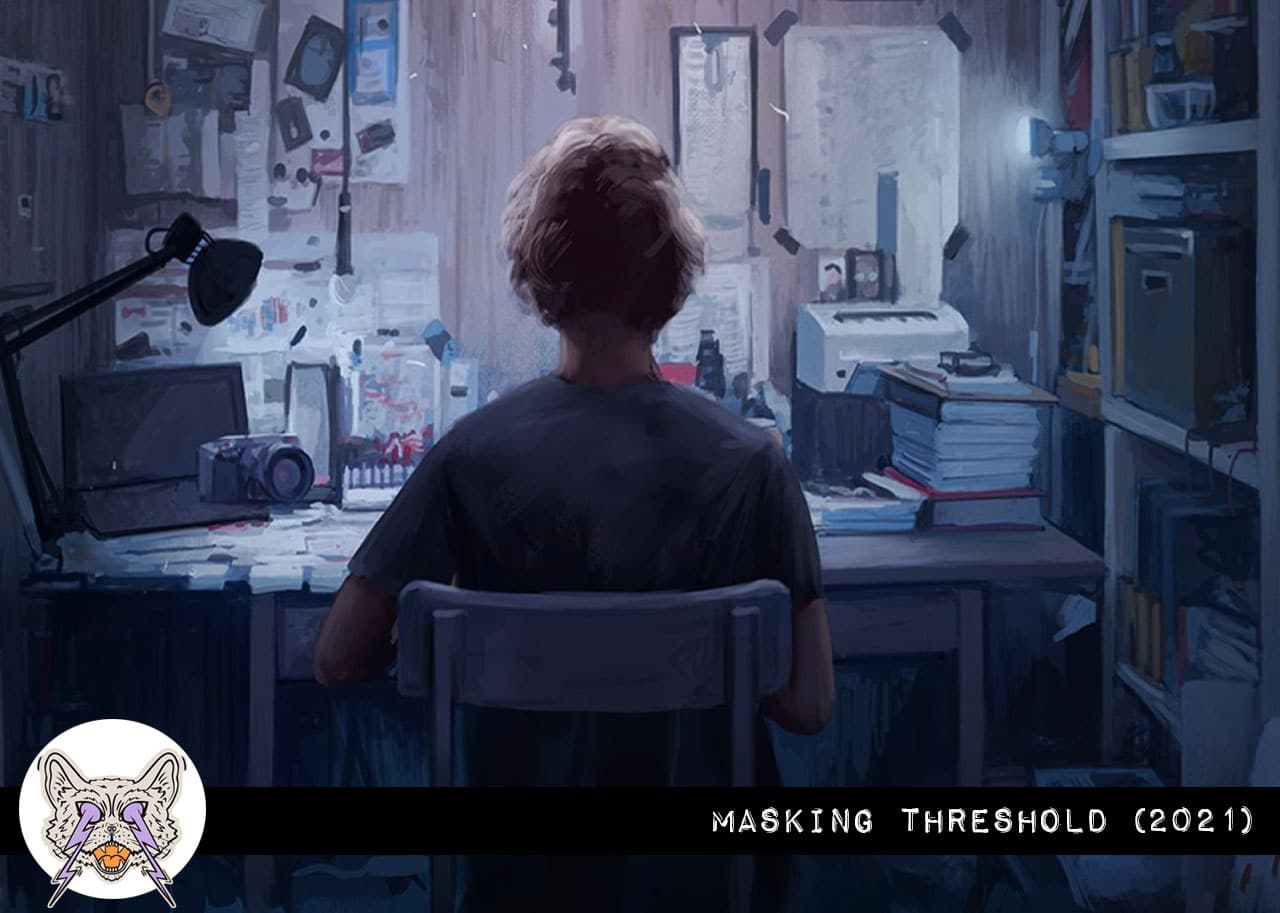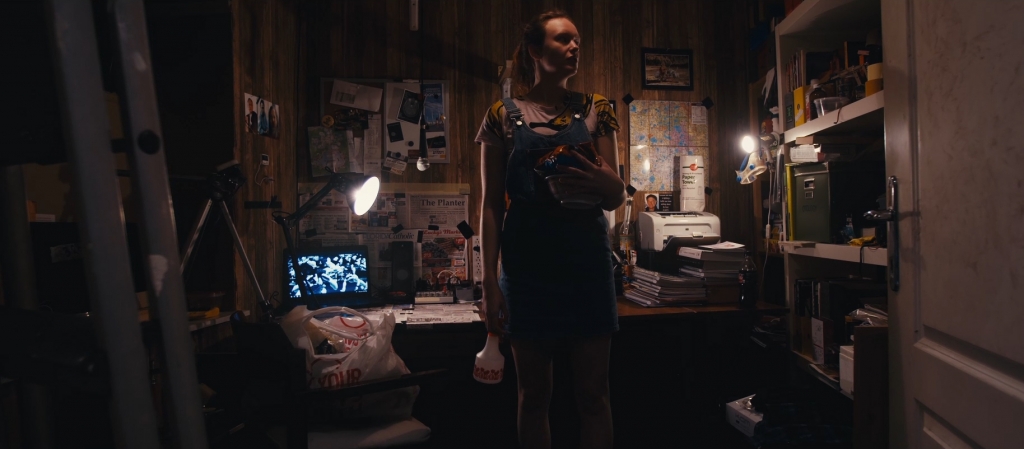A deeply shocking and unsettling film, sure to alienate many viewers, “Masking Threshold” nevertheless feels hard to ignore or dismiss.
Austrian artistic polymath Johannes Grenzfurthner has always been forward-thinking, exploring the intersections of technology, sex, violence, and underground subcultures across a wide array of media. A self-identified nerd, Grenzfurthner has used his art to both celebrate and critique nerd culture, and he brings every tool at his disposal to his 2021 film Masking Threshold.
The film concerns a nameless Protagonist (embodied by Grenzfurthner and voiced by Ethan Haslam) who has become consumed with seeking a cure for his strange hearing impairment: he’s constantly bombarded by a high-pitched sound that seems to change depending on the organic matter around him.
The malady has interrupted his entire life, forcing him to drop out of his Ph.D. program and break off a relationship, pushing him into isolation. No doctor has been able to help him, and most believe that his condition is psychological in nature, an idea he fervently rejects (the script from Grenzfurthner and Samantha Leinhard plays it coy whether or not this is true).
A physicist by training, the Protagonist believes the cure lies somewhere in observable, natural science.
And despite his desperation, he is unwilling to turn to any treatment that exists outside of these boundaries. He abhors religion, sneers at his mother’s homeopathic ideas, and turns his nose up at acupuncture and psychotherapy, among other things.
In the course of his experiments, he discovers that death itself produces a unique sound, and affects the sounds of other organisms that witness it, beginning with insects and working his way up to more complex forms of life (let this be your content warning if you object to depictions of violence towards small animals).
If you’ve seen a horror movie before, you probably have a good idea of where his experiments might lead him.
While the story arc of Masking Threshold isn’t all that unusual, its structure definitely is, existing somewhere between a monologue, a video essay, and a psychological horror story.
Composed largely of extreme close-ups of the Protagonist’s experiments and research, Haslam’s voice is the only one we hear, other than a few brief interjections from his helpful neighbor Dana (Kathrina Rose).
There’s a deliberate disconnect between the images we see and what we hear, leading to a sense of cognitive dissonance that, along with the script’s unreliable first-person point of view, traps us in the rapidly fraying mind of the Protagonist. He’s a hard character to like, even before he goes off the deep end, and Haslam does strong work to make him compelling as well as frustrating.
It’s a novel way to tell a horror story, but it makes for a deliberately unpleasant viewing experience.
Beyond the piercing soundscape (the best way to watch it may be with in-ear headphones for the full effect), many of the images Grenzfurthner subjects us to are downright grotesque, from bodily fluids to dead animals to moldy food. And that all comes before the film’s probably inevitable conclusion kicks the grotesquerie into high gear.
I’m sure this is all by design; Grenzfurthner places it within the tradition of extreme horror, meant to shock and unsettle us, plunging us into the mind of a seemingly normal person driven to troubling extremes.
However, for me at least, its parade of transgressive imagery left me feeling both numb and nauseous. I don’t consider myself a very squeamish person (I watch a lot of horror movies, for crying out loud), but even I found myself wincing on more than one occasion.
I’m not entirely sure what, if anything, Grenzfurthner is trying to say with this film.
Maybe it’s a comment on the limits of the scientific method, the ways that rigorous adherence to scientific principles can be just as rigidly dogmatic as the organized religion his protagonist disdains.
Grenzfurthner places the film in the lineage of the weird fiction of writers like H.P. Lovecraft, stories of rational people whose sanity unravels when faced with the unimaginable, and I think you can see some of that in how quickly we become desensitized to violence when we’re bombarded by it to an unfathomable degree.
At one point, the film references the horrifying 2016 Pulse Nightclub massacre that claimed the lives of 49 people, and the Protagonist tells us that some of the victims were his friends and members of his community.
When faced with such staggering death, whether from the endless parade of mass shootings or a pandemic that continues to claim lives, it’s easy to feel like we’re all forced to deal with the endless noise of suffering that’s impossible to ignore.
It’s possible that Grenzfurthner is literalizing that feeling and mining it for horror, which is a noble idea if it’s true. His formal experimentation and more intellectual approach to horror is interesting and valuable, but the end result mostly left me feeling hollow and in dire need of a shower.
















Follow Us!